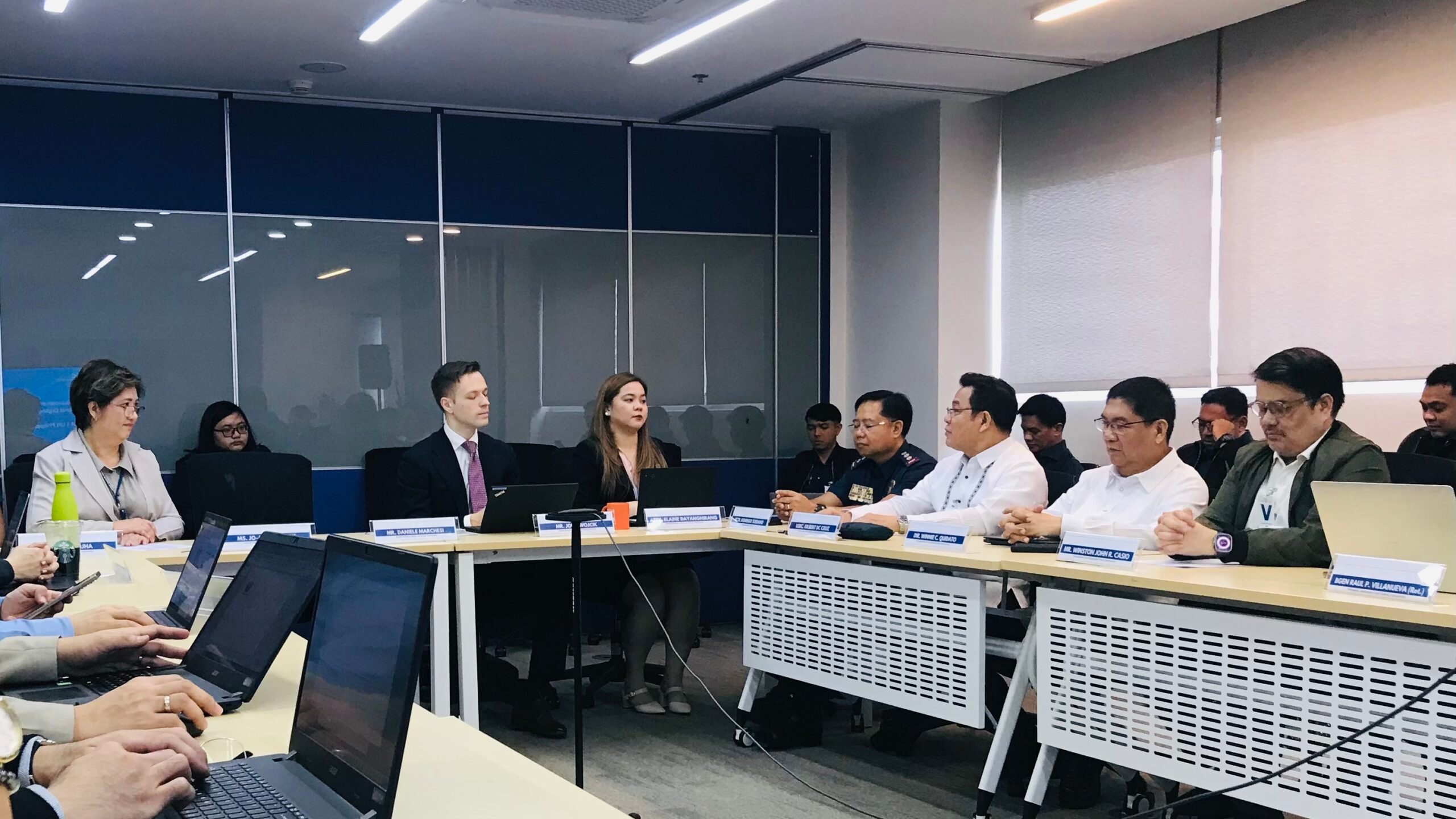This is AI generated summarization, which may have errors. For context, always refer to the full article.
The United Nations Office on Drugs and Crime says addressing cross-border crimes requires an all-government and all-sector approach
MANILA, Philippines – The United Nations Office on Drugs and Crime (UNODC) and the Presidential Anti-Organized Crime Commission (PAOCC) held a dialogue on Monday, May 6, following a series of raids on Philippine offshore gaming operators (POGO) and text scam companies.
UNODC country manager Daniele Marchesi stressed the importance of identifying the gaps to strengthen cooperation across borders and assess trends on a regional level.
“This requires an all-government, all-sector approach in identifying gaps as well as finding support and right solutions. To understand money laundering, anti-corruption, cybercrime, and looking at different points of views and areas to assess and identify the trend and problem at the national and regional level,” Marchesi said.
PAOCC spokesperson Winston Casio said the current volume of Filipino workers employed in scam companies have reached an alarming rate.
“They have enrolled thousands of cellphones with foreign sim cards for foreign banks and successfully sent and received money by authenticating transactions through cellphones and corresponding OTPs (one-time passwords),” he added.
Casio said the Philippine government spends P35 million on each raid operation. For every foreigner detained, the PAOCC spends P72,000 for food, utilities, and medical bills, as well as deportation.
The expenses, however, can be recovered after confiscating assets and properties of the POGO facilities, according to Casio.
A total of 402 online scam companies, 251 internet gaming licensees, 49 service providers, and 19 special class business process outsourcing companies are still operating in the country, according to PAOCC and the Philippine Amusement and Gaming Corporation. – Rappler.com

